Related Research Articles

An intelligent transportation system (ITS) is an advanced application which aims to provide innovative services relating to different modes of transport and traffic management and enable users to be better informed and make safer, more coordinated, and 'smarter' use of transport networks.

Microsoft Flight Simulator is a series of flight simulator programs for Microsoft Windows operating systems, and earlier for MS-DOS and Classic Mac OS. It was an early product in the Microsoft application portfolio and differed significantly from Microsoft's other software, which was largely business-oriented. In November 2022, Microsoft Flight Simulator is the longest-running software product line for Microsoft, predating Windows by three years. Microsoft Flight Simulator is one of the longest-running PC video game series of all time.
Thales Group is a French multinational company that designs, develops and manufactures electrical systems as well as devices and equipment for the aerospace, defence, transportation and security sectors. The company is headquartered in Paris' business district, La Défense, and its stock is listed on the Euronext Paris.

VMware, Inc. is an American cloud computing and virtualization technology company with headquarters in Palo Alto, California. VMware was the first commercially successful company to virtualize the x86 architecture.
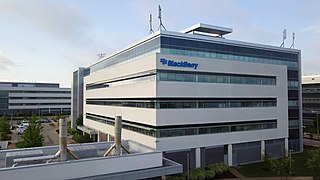
BlackBerry Limited is a Canadian software company specializing in cybersecurity. Founded in 1984, it was originally known as Research In Motion (RIM). As RIM, it developed the BlackBerry brand of interactive pagers, smartphones, and tablets. It transitioned to a cybersecurity enterprise software and services company under Chief Executive Officer John S. Chen. Its products are used by various businesses, car manufacturers, and government agencies to prevent hacking and ransomware attacks. They include BlackBerry Cylance's artificial intelligence based cyber-security solutions, the BlackBerry AtHoc emergency communication system (ECS) platform; the QNX real-time operating system; and BlackBerry Enterprise Server, a Unified Endpoint Management (UEM) platform.

Traffic Message Channel (TMC) is a technology for delivering traffic and travel information to motor vehicle drivers. It is digitally coded using the ALERT C or TPEG protocol into Radio Data System (RDS) carried via conventional FM radio broadcasts. It can also be transmitted on Digital Audio Broadcasting or satellite radio. TMC allows silent delivery of dynamic information suitable for reproduction or display in the user's language without interrupting audio broadcast services. Both public and commercial services are operational in many countries. When data is integrated directly into a navigation system, traffic information can be used in the system's route calculation.

An automotive navigation system is part of the automobile controls or a third party add-on used to find direction in an automobile. It typically uses a satellite navigation device to get its position data which is then correlated to a position on a road. When directions are needed routing can be calculated. On the fly traffic information can be used to adjust the route.
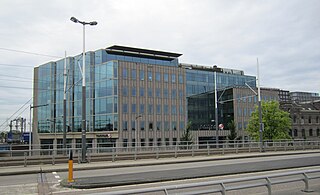
TomTom N.V. is a Dutch multinational developer and creator of location technology and consumer electronics. Founded in 1991 and headquartered in Amsterdam, TomTom released its first generation of satellite navigation devices to market in 2004. As of 2019 the company has over 4,500 employees worldwide and operations in 29 countries throughout Europe, Asia-Pacific, and the Americas.

The Chumby was a consumer electronics product formerly made by Chumby Industries, Inc. It is an embedded computer which provides Internet and LAN access via a Wi-Fi connection. Through this connection, the Chumby runs various software widgets. In 2010 Sony introduced a single product based on an offshoot version of Chumby, the Sony Dash.
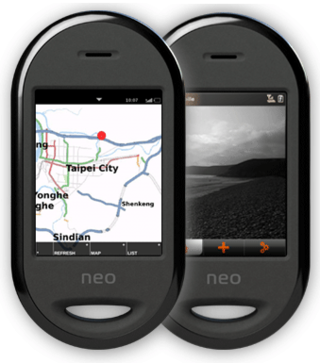
Openmoko is a discontinued project to create a family of open source mobile phones, including the hardware specification, the operating system, and actual smartphone development implementation like the Neo 1973 and Neo FreeRunner. The whole project was sponsored by Openmoko Inc.
Ford Sync is a factory-installed, integrated in-vehicle communications and entertainment system that allows users to make hands-free telephone calls, control music and perform other functions with the use of voice commands. The system consists of applications and user interfaces developed by Ford and other third-party developers. The first two generations run on the Windows Embedded Automotive operating system designed by Microsoft, while the third and fourth generations runs on the QNX operating system from BlackBerry Limited. Future versions will run on the Android operating system from Google.
StorNext File System (SNFS), colloquially referred to as StorNext is a shared disk file system made by Quantum Corporation. StorNext enables multiple Windows, Linux and Apple workstations to access shared block storage over a Fibre Channel network. With the StorNext file system installed, these computers can read and write to the same storage volume at the same time enabling what is known as a "file-locking SAN." StorNext is used in environments where large files must be shared, and accessed simultaneously by users without network delays, or where a file must be available for access by multiple readers starting at different times. Common use cases include multiple video editor environments in feature film, television and general video post production.

A satellite navigation device is a user equipment that uses one or more of several global navigation satellite systems (GNSS) to calculate the device's geographical position and provide navigational advice. Depending on the software used, the satnav device may display the position on a map, as geographic coordinates, or may offer routing directions.
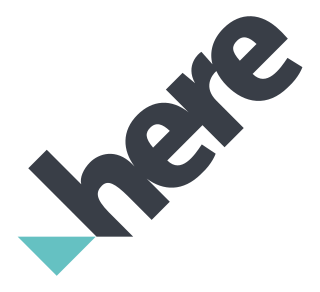
Here Technologies is an American–Dutch multinational group dealing with mapping, location data and related automotive services to individuals and companies. It is majority-owned by a consortium of German automotive companies and American semiconductor company Intel whilst other companies also own minority stakes. Its roots date back to U.S.-based Navteq in 1985, which was acquired by Finland-based Nokia in 2007. Here is currently based in The Netherlands.

Junos OS is a FreeBSD-based network operating system used in Juniper Networks routing, switching and security devices.
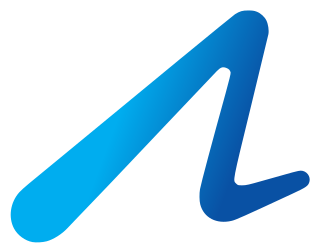
PlayStation Move is a motion game controller developed by Sony Interactive Entertainment. Initially released in 2010 for use with the PlayStation 3 home video game console, its compatibility was later expanded to its successor, the PlayStation 4 in 2013, its PlayStation VR platform in 2016 and the PlayStation 5 in 2020. Conceptually similar to Nintendo's Wii Remote and Microsoft's Kinect, its function is based around controller input in games stemming from the actual physical movement of the player. The Move uses inertial sensors in the wand to detect motion while the wand's position is tracked using a PlayStation Eye or PlayStation Camera. The device was generally well received by critics, but has not quite met Sony's goals for integration into the market.
Dash Navigation was a start-up based in Mountain View, California that produced devices and software for in-car navigation systems. Their first product was Dash Express. In January, 2007 Dash Express won "Best of CES" awards from both CNET and LAPTOP Magazine. The company was also named an Innovations 2007 honoree by the Consumer Electronics Association.
Waze, formerly FreeMap Israel, is a subsidiary company of Google that provides satellite navigation software on smartphones and other computers that support the Global Positioning System (GPS). In addition to turn-by-turn navigation, it incorporates user-submitted travel times and route details while downloading location-dependent information over a cellular network. Waze describes its application as a community-driven initiative that is free to download and use.
A connected car is a car that can communicate bidirectionally with other systems outside of the car (LAN). This allows the car to share internet access, and hence data, with other devices both inside and outside the vehicle. For safety-critical applications, it is anticipated that cars will also be connected using dedicated short-range communications (DSRC) or cellular radios, operating in the FCC-granted 5.9 GHz band with very low latency.
Deep content inspection (DCI) is a form of network filtering that examines an entire file or MIME object as it passes an inspection point, searching for viruses, spam, data loss, key words or other content level criteria. Deep Content Inspection is considered the evolution of Deep Packet Inspection with the ability to look at what the actual content contains instead of focusing on individual or multiple packets. Deep Content Inspection allows services to keep track of content across multiple packets so that the signatures they may be searching for can cross packet boundaries and yet they will still be found. An exhaustive form of network traffic inspection in which Internet traffic is examined across all the seven OSI ISO layers, and most importantly, the application layer.
References
- ↑ "Social Networking for Cars Can Help You Avoid Traffic Jams" - ABC News
- ↑ "Beating Traffic By Joining the Network" - washingtonpost.com
- ↑ "Will Dash work outside the US (e.g. Europe/Canada/Mexico)?" - Official Dash FAQ [ permanent dead link ]
- ↑ "Research in Motion Acquires Dash Navigation".
- ↑ "Dash Cavalier". Archived from the original on 2008-09-08. Retrieved 2008-09-10.